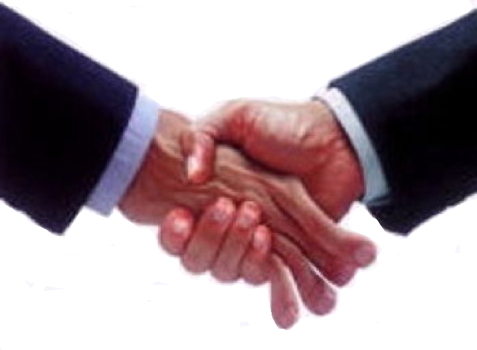
|
The Society of Folk Dance Historians (SFDH)
I Want to Hold Your Hand
[
Home |
About |
Encyclopedia | CLICK AN IMAGE TO ENLARGE |

|
The Beatles may not have cared how they held your hand, but then they sang far more than they danced. Most folk dancers hold hands gently when we dance with others, but it takes only one offender to ruin your folk dance experience. To insure that you are not one of those no one wants to hold hands with, be sure you are not using your thumbs AT ALL in the hand hold, when not specifically asked for by the choreographer. Thumbs are very rarely needed in any hand hold used for dancing – though there are a few exceptions. In fact, thumbs cause many of the following problems:
1) The Squeezer: These are usually new dancers or those who get nervous dancing. They may not be aware they are squeezing your hand, but not only does it hurt, it makes it difficult to let go and some dances require a change of hold or to let go completely.
2) The Fingernail Polishers: These people (most often women, but not always), feel a need to polish your fingernails with their – you guessed it – thumbs while dancing. It is distracting at best, rude, and an invasion of your neighbor's privacy at worst. Whether my fingernails are polished (usually not), natural (always), false/fake (never), it really isn't appropriate to be concerned with them, even if it comes with a compliment, such as "Wow, you have naturally French nails!" (I gather that has something to do with the white part of the nail?) Anyway, please refrain from rubbing your neighbor's nails. That is not why we came to dance and it is annoying and distracting.
3) Pressure on the 3rd Metacarpal: There is a spot on the back of the hand, just below the middle finger, which when someone presses down with their thumb, inflicts such severe pain that it can last another hour after the person has left. It is my experience that tall, thin, boney women are the worst offenders here. Maybe they don't have enough fat to pad their grip, but a strong grip is rarely needed or wanted in any dancing, so please hold lightly and don't try to break my bones. Better yet, stay away from this spot.
4) Holding Yourself Up by Putting Significant Weight on Your Neighbor's Hands or Shoulders: I hope someone will tell me when I am no longer able to balance on my own feet and hold up my own weight. This is sad, as I like to see people of all ages dance, but if you can't stand up without putting weight on someone else it is better to dance with a cane than rely on your neighbors for support. It isn't just the elderly and infirm who are the offenders. Some able-bodied dancers manage to routinely put their weight on the hands/arms beside them. Not only is it very hard to learn new dances, but disappointing to have to carry your neighbor's weight when trying to enjoy a dance. HINT: If you use a shopping cart in a store for balance or to take your weight, or if you only can dance dances where your are clinging to a partner or neighbor, sadly, folk dancing may no longer be right for you.
5) Holding Your Hands in Too Wide a W-hold: I know of few dances where your hand must come in front of my face covering my vision. Please stay on your side. A proper W-hold has elbows bent with hands held in a fairly straight line above your own elbows, not veering into my space. When people on both sides of you hold too wide a W-hold, the person caught in this sandwich has no place to put their own hands, unless it is together under their own chin.
6) Fidgety Hands: Nearly as distracting as the nail polisher is the person who is playing with your fingers, or can't keep their own hands still and are squirming in your hand, especially when a teacher is teaching. We are trying to concentrate. Our hand are not your toys.
7) The Yanker: The person beside you may know the correct arm sequences when you don't, but they can gently raise, cross, reach, lower, or pump your arms without causing you to dislocate your shoulder. I'd say it is more men than women who offend here, and it is possible they are unaware of their own strength.
8) Pinky Hold Ring Indentations: The offenders are wearing rings or other hand jewelry that are getting pressed into your skin in a little-finger hold. You may wear your rings if you like, smooth ones are better, but please don't press them so hard into my hands that they leave an impression. A little-finger hold can still be loose and not gripping with pressure wrapping the other person's finger.
Okay – perhaps I'm overly sensitive or maybe, due to many injuries, I feel more pain than most, but I've wanted to say this anonymously for years.
Now that I have said it – please at least think about it. I put a gender and body type, rather than an actual name of the most common offenders. And now I will fess up to my own offense. You may be wondering why I didn't begin this article with the correct hold, which is Right palm up, left palm down. That is because I feel direct pain in my elbow when my left palm is down, and no pain when both my hands are up. Additionally, before I was ever injured, being just five feet tall, my hands reach closer to the ground than most people's, and my left hand up worked best for holding hands with anyone more than four inches taller than me. So, I hereby declare I am a hand offender, though it is a conscious choice and provides me with far less pain, so I can concentrate on my steps, styling, and the music. Also, I generally tell people why my left hand is up and ask if they mind.
In short, leave the firm handshake at the office, dance with gentle hands, no thumbs, and everyone will be eager to hold your hand – especially me.
Used with permission of the author.
Reprinted with permission from Let's Dance! magazine, July/August, 2016.
This page © 2018 by Ron Houston.
Please do not copy any part of this page without including this copyright notice.
Please do not copy small portions out of context.
Please do not copy large portions without permission from Ron Houston.
